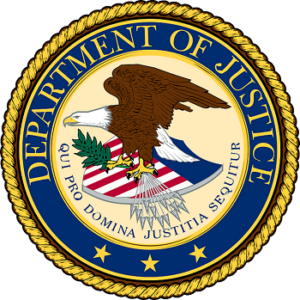Ponzi & Pyramid Schemes
What is a Ponzi Scheme?
 A standard Ponzi scheme is a fraudulent investment scheme in which an operator pays returns on investments from capital derived from new investors, rather than from legitimate investment profits. Ponzi scheme operators entice new investors with abnormally high short-term rates of return.
A standard Ponzi scheme is a fraudulent investment scheme in which an operator pays returns on investments from capital derived from new investors, rather than from legitimate investment profits. Ponzi scheme operators entice new investors with abnormally high short-term rates of return.
The fraudster profits by either charging fees on the “investments,” or simply fleeing with investors’ funds. Ponzi schemes generally fall apart when there is not enough new capital to pay the ever-growing pool of existing investors.
The scheme is named for Charles Ponzi of Boston, Massachusetts. In the 1920s, Ponzi launched a scheme that guaranteed investors a 50% return on investments in postal coupons. Although Ponzi was able to pay his initial backers, the scheme dissolved when he was unable to pay later investors.
Examples of Ponzi Schemes
- Bernie Madoff: a Wall Street broker whose wealth management business was a nearly twenty year Ponzi scheme that defrauded investors of billions. Madoff’s scheme was revealed by whistleblower Harry Markopolos.
- JSG Capital Investments: two California men who promised high returns via investments in “hot” pre-IPO stocks. No actual investments were ever made.
What is a Pyramid Scheme?
A pyramid scheme, also called a chain referral scheme, is a fraudulent business model in which new members are recruited with promises of payment tied to their ability to enroll future members in the scheme. As the membership pool expands exponentially, further recruiting becomes impossible and the “business” becomes unsustainable.
A pyramid scheme often appears as a legitimate multi-level marketing (MLM) practice. A legitimate MLM uses the profits from downstream sales to pay bonuses to recruiters. However, pyramid schemes involve almost no legitimate sales. Instead, earlier investors are paid from the incoming funds of subsequent investments instead of true profits.
Examples of Pyramid Schemes:
- Burn Lounge: An online music store that lured persons who paid for the right to sell music, while earning awards for recruiting other individuals into the business. The bonuses were not in any way tied to sales of merchandise. The FTC won a $17 million judgment.
- Give and Take: An English scheme in which a group of operators requested £3,000 as an entry fee and promised a £20,000 bonus for recruiting a certain amount of new members. Six individuals were convicted of running the scheme and served jail time.
Differences Between Ponzi and Pyramid Schemes
Ponzi and pyramid schemes are similar but not identical.
The essential difference between the two frauds is that a Ponzi scheme generally only requires investment in something from its victims, with promised returns at a later pay date.
Pyramid schemes, unlike Ponzi schemes, usually offer a victim the opportunity to “make” money by recruiting more people into the scam.
The SEC and CFTC bring actions against perpetrators of both Ponzi and pyramid schemes, and whistleblowers are essential in catching this kind of fraud.
Contact an Experienced Whistleblower Lawyer
Do you have information concerning Ponzi or Pyramid scheme fraud? We can help. Submit our secure form or call us at (347) 417-2192 today to request a confidential consultation with an experienced whistleblower attorney.




